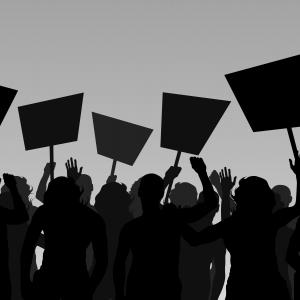
Siki Dlanga (@SikiWrites) is on the South African Christian Leadership Initiative steering committee and is a founder of Freedom Mantle, dedicated to awakening a new generation of leaders in a post-Mandela South Africa.
Posts By This Author
United We Stand

kstudija / Shutterstock
IT SEEMS AS though after liberation, the voice of conscience left the South African public sphere and retired to a quiet church life, so that the current generation barely knows that the church ever influenced South African political and public affairs.
On the day of Nelson Mandela’s inauguration, Archbishop Desmond Tutu famously announced that he was returning to do the “real” business of the church by leaving politics to qualified politicians. Years later, during the era of President Jacob Zuma, Tutu often lamented about the undesirable state of the country under the current leaders. He must have forgotten that by leaving politics to politicians in 1994, he too played a role in leading the nation to this position he now regrets.
Kairos South Africa recently celebrated its 30th anniversary. Church leaders from as far as Norway, the U.S., and Palestine all remembered how the 1985 Kairos document taught the worldwide church a hopeful language to address injustice. Yet now the majority of young people in South Africa do not know anything about this heroic church history.
South African anti-apartheid leader Allan Boesak referred to the Kairos movement as a “dangerous memory.” It does indeed have the potential to be a dangerous memory—one that should be remembered by every one of the Christians who make up 81 percent of the South African population. Unfortunately, it is a memory held by only a select older minority.
How can this change? This summer several members of the new generation of South African Christian leaders traveled to the U.S. to study how to be effective Christian agents of social justice. At the Wild Goose Festival in North Carolina, I listened to Bree Newsome explain that it was her faith in God that gave her the courage to pull down the Confederate flag at the South Carolina capitol after the massacre at Emanuel AME Church in Charleston. “You come against me with hatred and oppression and violence. I come against you in the name of God. This flag comes down today!” she said.